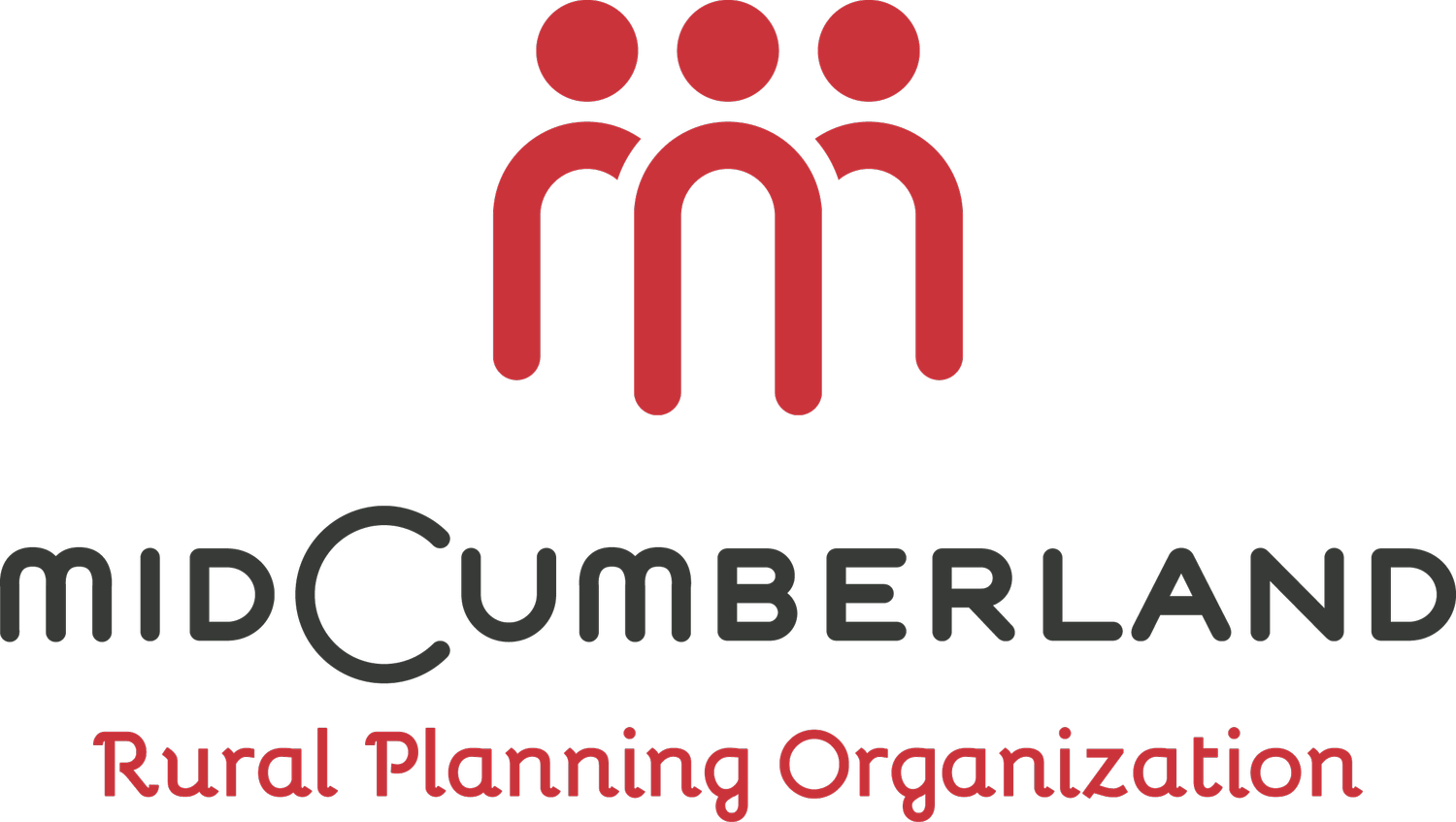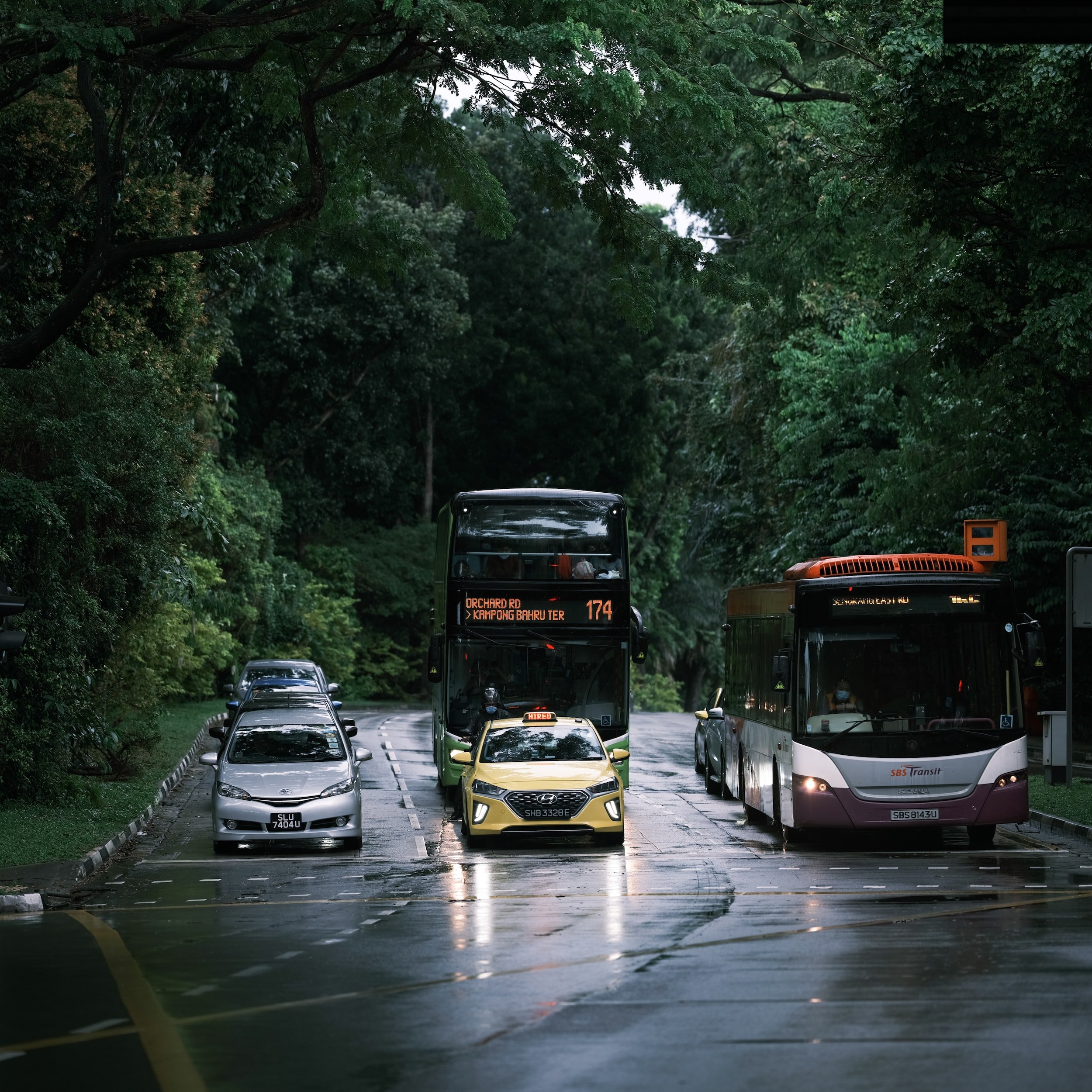
Planning Requests and Funding Sources
There are many available transportation and related planning requests and grants offered by a number of state and federal departments and agencies, including Tennessee. Across the state, the MPO’s and RPO’s alike are seemingly in constant activity assisting the local communities with studies, plans, and other planning activities to bring about improvements to address those needs and concerns, and available funding sources. Below are multiple planning and funding opportunities for our communities to explore.
TDOT Traffic Signal Modernization Program (TSMP)
The Traffic Signal Modernization Program (TSMP) grant is a Tennessee Department of Transportation (TDOT) program designed to help communities and their local traffic signal maintaining agencies modernize existing traffic signal equipment and operations. The TSMP project must be located on a State Route, and communities and unincorporated areas within counties in non-CMAQ (Congestion Mitigation and Air Quality) counties are eligible for TSMP grant funds. In addition, communities with a population below 5,000 (based on the 2020 federal census) regardless of county CMAQ designation are eligible for TSMP funds. However, communities with a population above 5,000 (based on the 2020 federal census) and unincorporated areas within counties in CMAQ eligible counties are not eligible for TSMP grant funds and those grant applications submitted will be eliminated from consideration. The TSMP grant funds are intended to address specific needs contained in the grant application and not intended as equipment only procurement funds or provide local project fund assistance for communities. Every project will have a different associated project cap up to $125,000 per project.
Eligible TSMP items include Controllers & Conflict Monitors, Cabinets & Equipment, Signal Heads & Flashing Beacons, and Supplemental Signal Heads.
Some expected benefits to modernizing your traffic signal items can include reduction in crashes and traffic congestion, and increase in detection reliability.
The TSMP Grant is offered annually. For more information about the program, please visit TDOT’s Traffic Design Division at https://www.tn.gov/tdot/traffic-design/signal-and-lighting-design/traffic-signal-modernization-program.html
Local Roads Safety Initiative (LRSI)
TDOT’s Highway Safety Improvement Program (HSIP) is a core Federal-aid program that offers assistance to communities to achieve a significant reduction in traffic fatalities and serious injuries on all public roads, including non-State owned public roads. TDOT’s Strategic Highway Safety Plan provides a comprehensive framework for addressing this. A Road Safety Audit (RSA) is a formal safety performance evaluation of an existing or future road or intersection by an independent audit team that intends to eliminate or alleviate safety concerns identified when studying crash data and actual field investigations. RSA’s are used primarily as “quick” improvements to correct safety issues such as lack of signing or striping or to correct minor geometric deficiencies. Typically, all improvements occur within the existing right-of-way and are completed within one (1) year of the final report.
Local officials can let the MTRPO Coordinator know of a safety concern in their community, which a Crash Data request form is completed by the Coordinator and sent to the OCT who in turn forwards to the Project Safety Office. If the analysis determines the concern meets the HSIP requirements, then communication will be returned to the local officials that the RSA will proceed. The Local Roads Safety Initiative (LRSI) is a funding source for up to $250,000 for RPO communities for safety improvements.
Community Transportation Planning Request (CTPR)
The Community Transportation Planning Request (CTPR) is a way to get new projects within rural areas, into the TDOT queue. OCT implemented a process by which local officials can identify projects within their jurisdiction, and request an assessment be completed. OCT planners work with the MTRPO Coordinator to collect and assemble data that is submitted to the Strategic Transportation Investments Division (STID) at least annually. After review and consideration STID will decide next steps, if any, and conduct a Needs Assessment if the request is warranted. This process is specifically for a new project request by a community. This is specifically for a NEW (New Start) project request.
It is the MTRPO Coordinator’s responsibility to complete a CTPR request form and written assessment, on behalf of local officials, and provide to TDOT OCT staff to begin the process. After a CTPR is completed and submitted, it will be evaluated. There are two different levels of requests:
Level 1 Request is when a review by OCT Regional Staff determines the request should go to a regional review (e.g., regional traffic staff, project development staff, or traffic operations staff).
Level 2 Request is when an evaluation by TDOT staff determines the request qualifies (if warranted) for a “Needs Assessment” by TDOT’s Strategic Transportation Investments Division (STID).
The outcome of the Needs Assessment is whether the project is warranted or not. If the Needs Assessment determines that the project warranted then it may be designated as a “New Start” in the Preliminary Engineering Phase (PE), once funding is available. After funding is allocated, a formal study would be conducted by STID and the Long Range Planning Division. The project would then enter the Project Development process at TDOT by going through the Environmental/ Right of Way/ Design/ Construction phases.
Please contact the MTRPO Coordinator for more information to begin the CTPR process.
Community Transportation Planning Grant
The Community Transportation Planning Grant (CTPG) provides funding for transportation studies, plans, and other planning activities in communities. Eligible planning activities for CTPG’s are:
Complete Streets Plan
Pedestrian and Bicycle Plan
Transportation Systems Management & Operations
Corridor Study
Road Diet Analysis
Community Mobility Plan
Pavement Management / Re-striping Plans
Resurfacing Plan
Further details on CTPG’s can be found on TDOT’s website on Transportation Planning Grants.The grant encompasses a maximum amount in funding for eligible planning activities. Ninety percent (90%) of consultant services are funded by TDOT, and ten percent (10%) of the project cost will be a local match on behalf the awarded municipality. The CTPGs assist communities with planning efforts that define the transportation cohesiveness between multimodal transportation systems and local land use objectives that achieve the statewide transportation goals. They help with the creation of planning documents that support improvements in traffic flow, safety, and overall efficiency of the transportation system. CTPG’s provide governments with planning resources to achieve community visions as related to transportation and land use needs that promote future economic growth. Eligibility Requirements for CTPG’s:
Central focus of the plan must involve a state route
Counties (and municipalities) that are “distressed” as of FY 2020 qualify for no local match
The application must be submitted by a municipality
Multimodal Access Grant
TDOT’s Multimodal Access Grant is a State-funded program created to support the transportation needs of pedestrians, bicyclists, and transit users through infrastructure projects that address existing gaps along state routes. Multimodal Access Grant projects are State-funded at 90% with a 10% local match (95% with a 5% local match if community’s economic status is an at-risk or distressed community level) with the maximum award amount of $1,125,000 (economically-distressed communities’ maximum award amount of $1,187,500.) The first step in applying for this grant is to complete a Notice of Intent to Apply for each project proposal and send it to the TDOT Office of Multimodal Planning. Once the Notice of Intent to Apply has been assessed, eligible applicants will be invited to submit a full application.
Transportation Alternatives Grant
The Transportation Alternatives Program (TAP) Grant is a federally funded program and is administered by TDOT’s Local Programs Development Office. A variety of activities, such as the restoration of historic facilities, bike and pedestrian trails, landscaping, and other non-traditional transportation projects, are eligible for grant funds under the federal program. All local governmental agencies can submit an application to the State competitive program. For more information or assistance with any transportation alternatives program opportunities or related, please contact the MTRPO Coordinator by email here karyssa.wilson@mchra.com, or check out TDOT’s webpage.
State Industrial Access Road Grant
The State Industrial Access Road (SIA) Program provides funding and technical assistance for highway access to new and expanding industries across the state. TDOT contracts with local governments for projects that will be developed under the SIA Program. For more information about the State Industrial Access Road program: https://www.tn.gov/tdot/pm/programs/state-industrial-access-program.html
The Tennessee Department of Transportation now has a database for a variety of federal, state, and non-profit funding opportunities available to Tennessee communities. Although not an exhaustive list, the database is designed for searches by project category, agency, or general search to help with your search. Or, by scrolling the list provided.
If you know of other funding programs that could benefit others, you have an opportunity to suggest an addition by completing a form via the link provided here.
Check it out! TDOT Transportation Funding Database
Scenic Byways program
All National, State, and Tribal Scenic Byways and All-American Roads are eligible for National Scenic Byways Program discretionary grants through the Federal Highway Administration (FHWA). Funding can be used for any of the following:
An activity related to the planning, design, or development of a State or Indian tribe scenic byway program.
Development and implementation of a corridor management plan to maintain the scenic, historical, recreational, cultural, natural, and archaeological characteristics of a byway corridor while providing for accommodation of increased tourism and development of related amenities.
Safety improvements to a scenic byway to the extent that the improvements are necessary to accommodate increased traffic and changes in the types of vehicles using the highway because of the scenic byway designation.
Construction along a scenic byway of a facility for pedestrians and bicyclists, rest area, turnout, highway shoulder improvement, overlook, or interpretive facility (must be within or immediately adjacent to the byway’s right of way).
An improvement to a scenic byway that will enhance access to an area for the purpose of recreation, including water related recreation.
Protection of scenic, historical, recreational, cultural, natural, and archaeological resources in an area adjacent to a scenic byway.
Development and provision of tourist information to the public, including interpretive information about a scenic byway (however product advertising is not permitted with grant).
Development and implementation of a scenic byway marketing program.
The Tennessee Scenic Byways Program is administered by the Tennessee Department of Transportation (TDOT), Environmental Division, Highway Beautification Office. All state byways are administered by committees of local leaders and volunteers that plan promotional events and activities for their communities. The byways provide alternatives to other travel routes, with unique historic, scenic, and natural qualities, and offer visitors an enjoyable journey where they can experience the natural beauty of Tennessee.
In the MTRPO, there are two byways encompassing Houston, Humphreys, and Stewart Counties: the Tennessee River Trail Scenic Byway and the Woodlands Trace National Scenic Byway. Each byway has a corridor management plan for vision and goals, respectively, provided in the links below:
Tennessee River Trails Corridor Management Plan
Woodlands Trace Corridor Management Plan
For more information on scenic byways and funding opportunities, please visit
Learn More ➔National Scenic Byways program
Also, for the TDOT Highway Beautification Office:
Other Transportation grant opportunities:
Community Development Block Grant (CDBG). Administered by the Tennessee Department of Economic & Community Development’s (TECD) Community & Rural Development, CDBG funds may be used for local safety infrastructure improvements such as sidewalks and pedestrian walking paths. https://www.tn.gov/ecd/community-development-block-grant/cdbg.html
Safe Streets and Roads for All (SS4A). Administered by FHWA, the program provides funding for regional and local initiatives to prevent roadway deaths and serious injuries. Includes funding for developing or updating a comprehensive safety action plan, conduct planning, design, and development activities in support of a safety action plan, or carrying out of projects and strategies identified in a safety action plan. https://www.transportation.gov/grants/SS4A
Surface Transportation Block Grant program (STBG). Administered by FHWA, provides guaranteed flexible funding that may be used by states and localities for projects to preserve and improve the conditions and performance on any Federal-aid highway, bridge and tunnel projects on any public road, pedestrian and bicycle infrastructure, infrastructure-based capital improvements, and transit capital projects, including intercity bus terminals. https://www.tn.gov/content/dam/tn/tdot/programdevelopment/localprograms/funding-options/STBGProgram.pdf
















